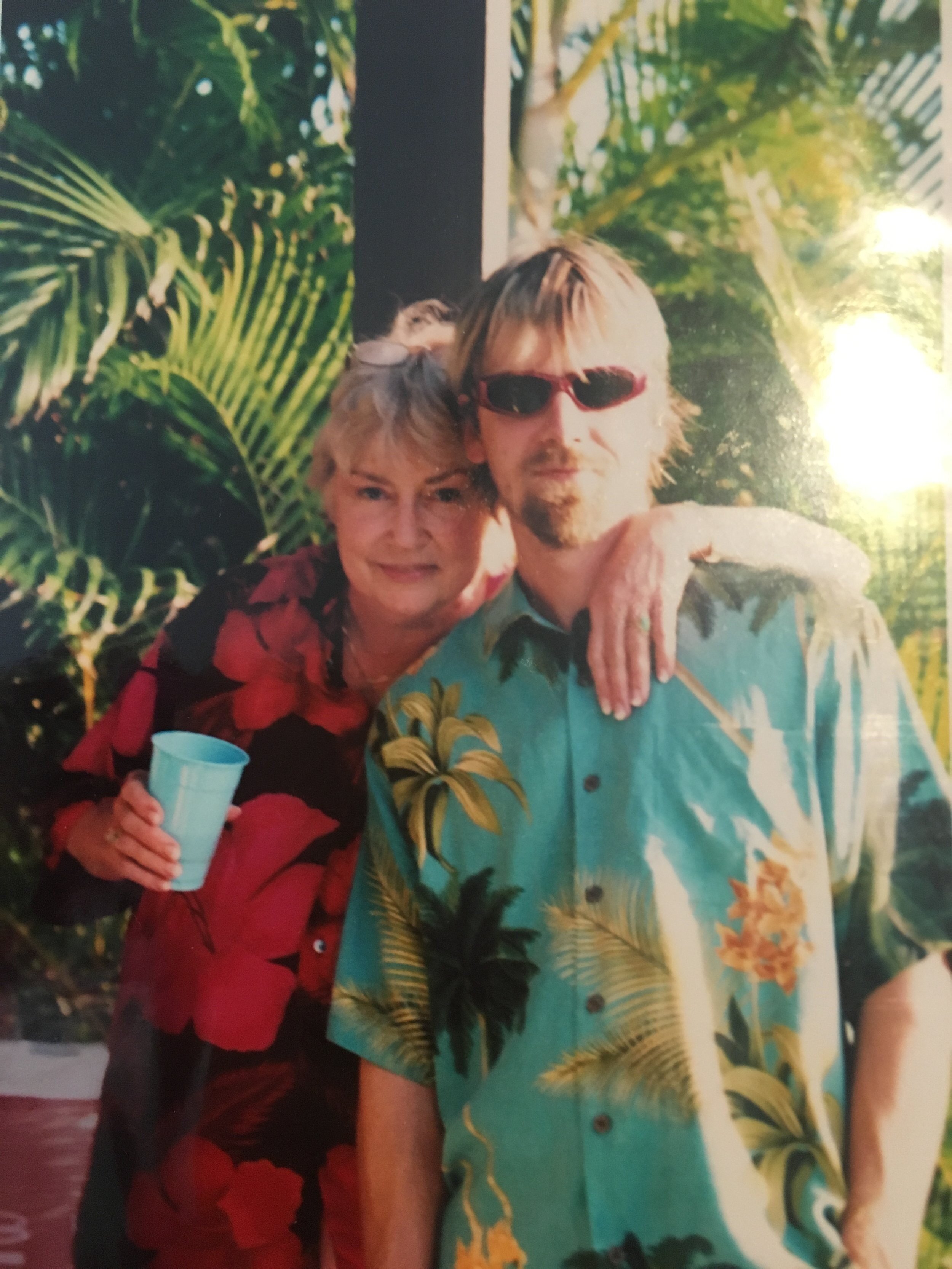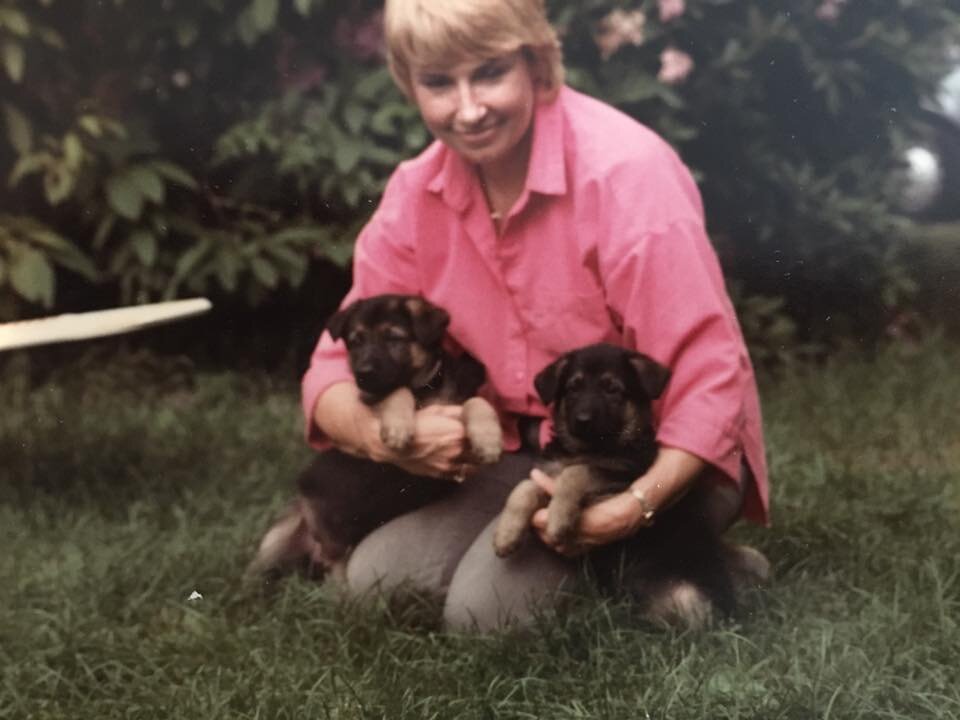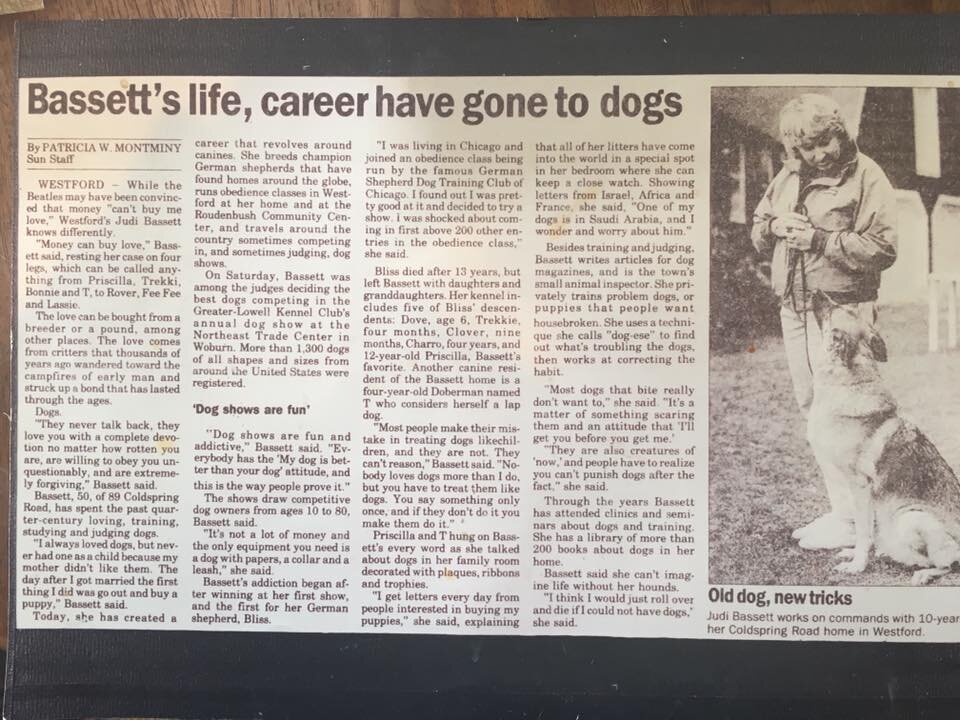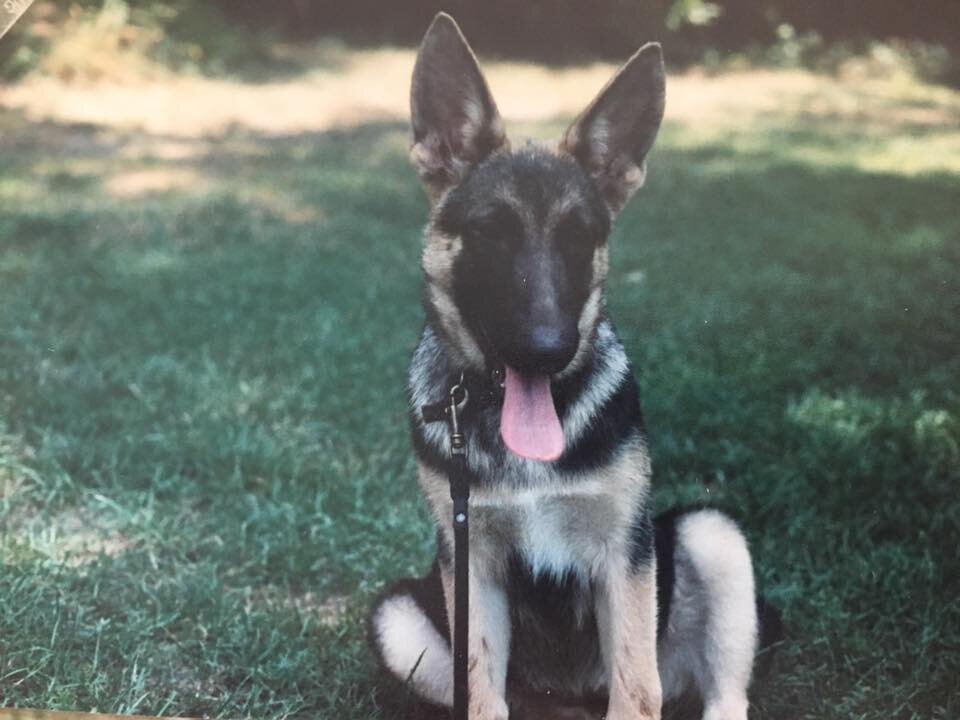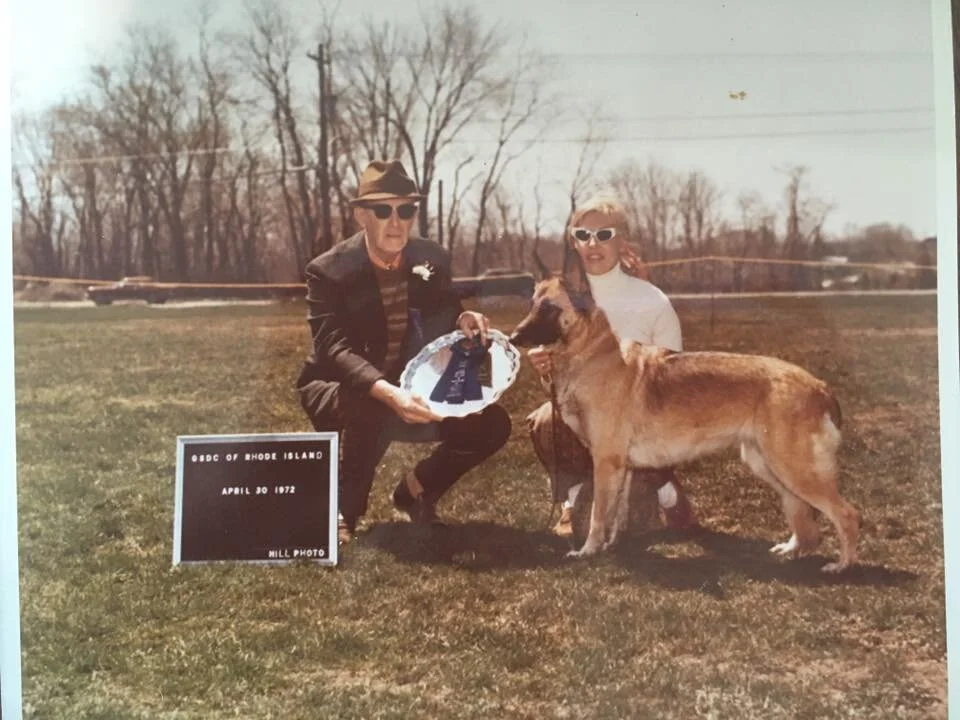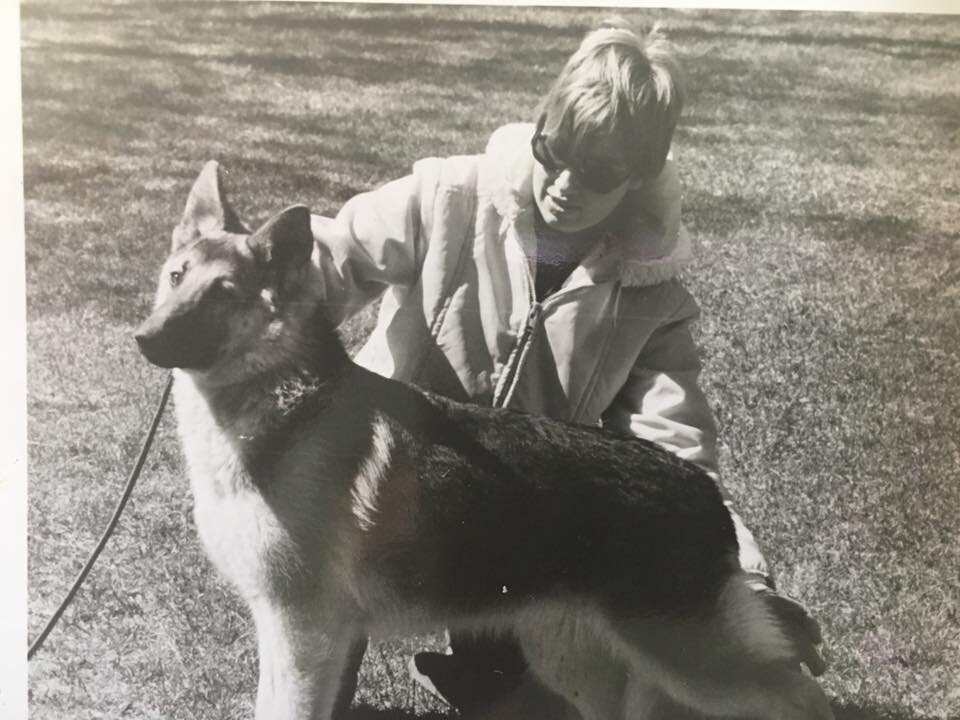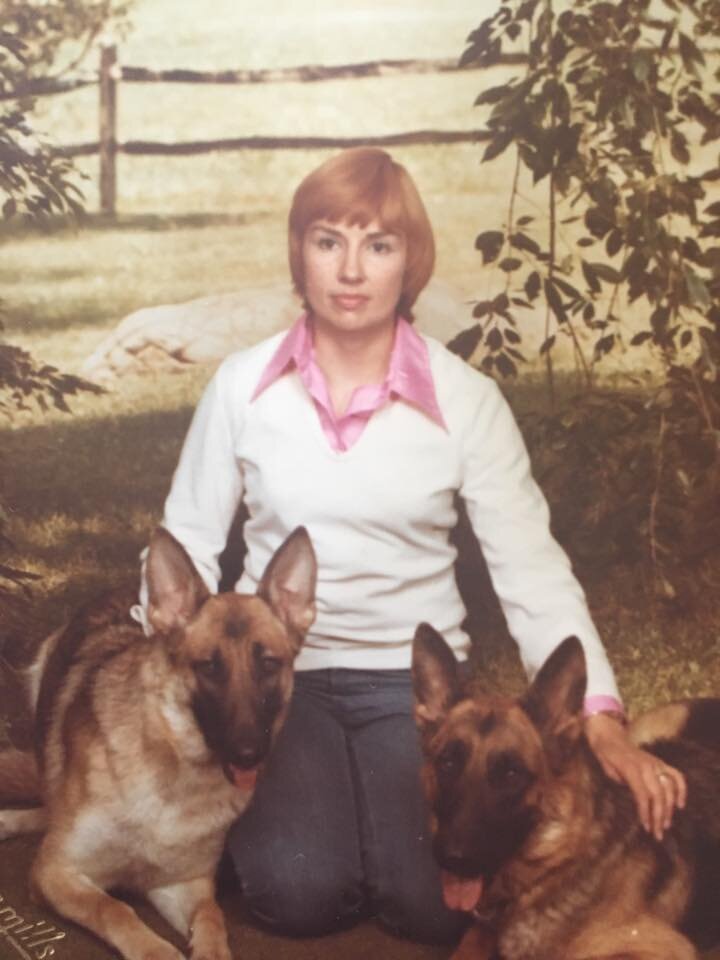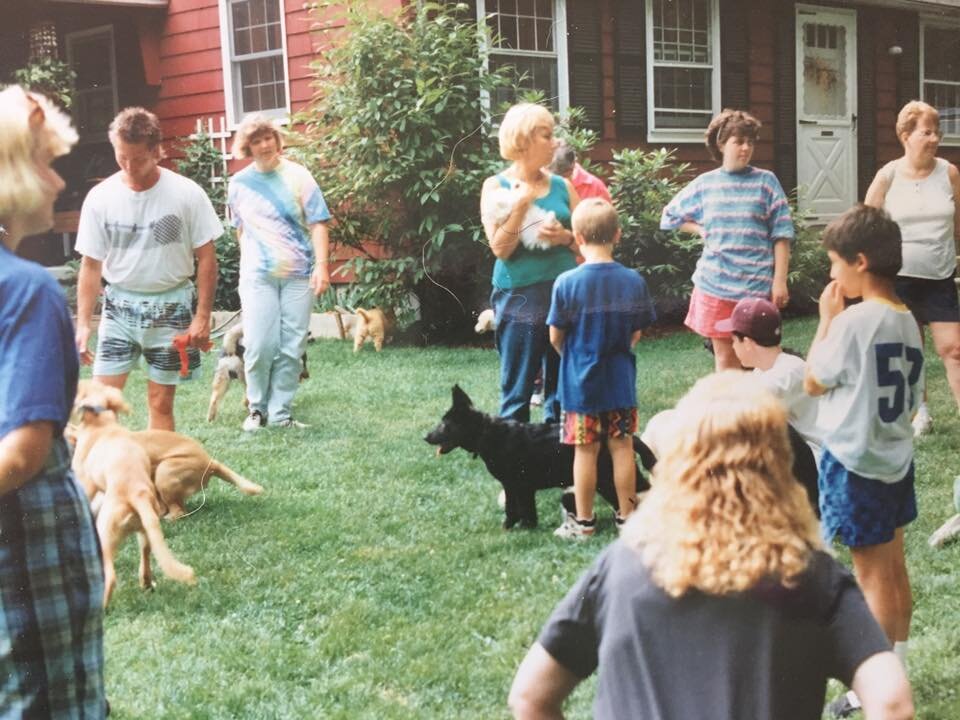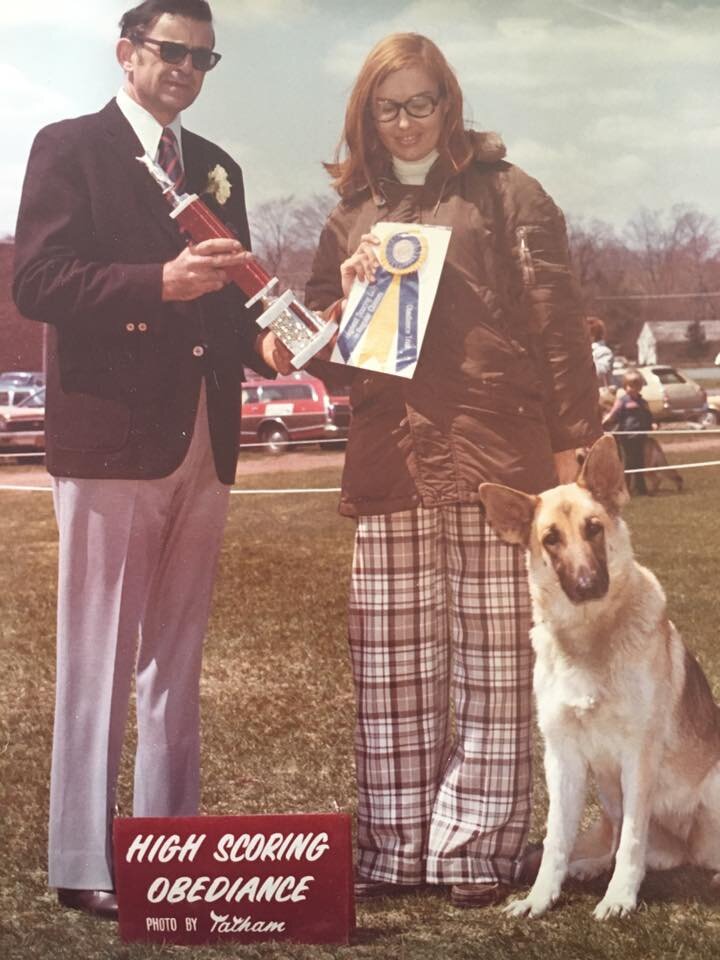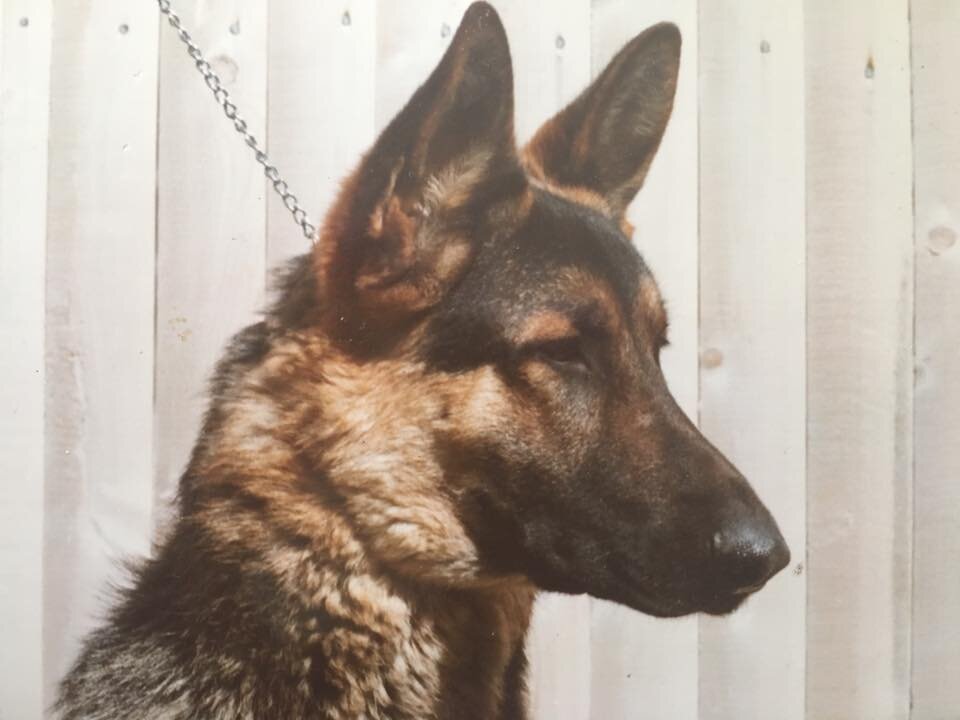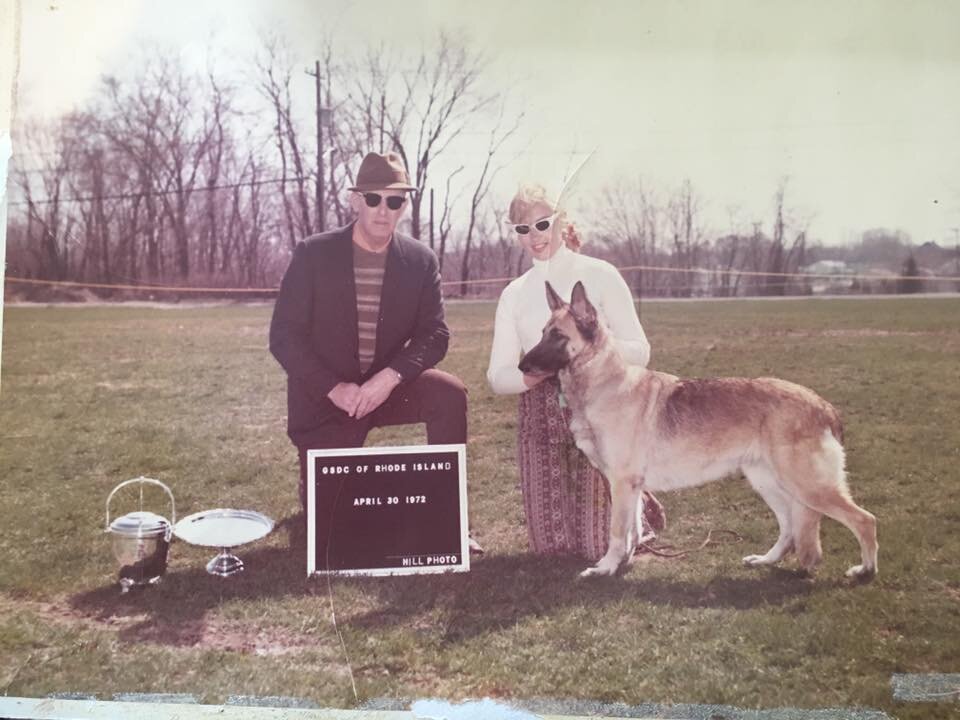JABCECC’s History
David Bassett as a boy with one of his GSDs
One could say it all began in a whelping box in 1965, when David Bassett’s mother, Judith A. Bassett, was in labor with David but wouldn’t go to the hospital until her litter of puppies was whelped. (David was almost born in that same whelping box with those puppies!)
David grew up in his mom’s dog boarding and training facility, and most of his school photos were taken with David and one of his German Shepherds. For David, being around dogs is more comfortable than being around people.
Amy and Dave with their two German Shepherd Dogs, Bart and Lola
Many years later, one evening after dinner, Dave and Amy were relaxing with their two German Shepherds, Bart and Lola. Dave mentioned seeing a story on National Geographic about Russian foxes who had been domesticated to start showing dog-like behavior. After much research, the couple locked onto an idea on training these foxes to try to do avalanche search and rescue work with these foxes.
Why avalanche rescue? Much like dogs, foxes have a keen sense of smell and very acute hearing. But unlike dogs, foxes also have physiological and behavioral adaptations that allow them to locate potential prey items under many feet of snow with pinpoint accuracy. These unique abilities could enable them, with appropriate training, to locate people who were unfortunate enough to be caught in an avalanche, trapped under the snow.
The problem was that no one had ever attempted to train a fox to the degree necessary to accomplish this sort of utility work. The consensus was that while foxes were certainly intelligent enough to do many useful things, ordinary foxes were not capable of forming the deep human/animal bond that is required to be successful in such activities.
Sophia, one of the first RDFs Amy and David brought to America.
This is where these very unique foxes come in. The Institute of Cytology and Genetics in Russia was leaps and bounds ahead of anyone else in breeding animals that had an intrinsic desire to interact with humans and form deep bonds.
No one had imported one of these foxes before, which was the first challenge. After many months of work, two Russian domesticated foxes were on a plane speeding toward America to begin their new lives as Americans.
When first meeting the foxes at the airport, Amy and Dave were more nervous than the animals, not knowing what to expect. These were certainly not wild foxes, but also certainly not quite like a dog. They were extremely intelligent, friendly but independent, and adorable.
But how trainable would they be? Amy and Dave quickly learned that with proper motivation, these Russian domesticated foxes would pick up new behaviors quicker than a dog. They learned to sit, come, down, stay, and give me your paw. Of course, they were a bit cleverer than a dog and certainly more independent, so without a treat, they would only perform the cue if they "felt like it". (And they’re clever enough to know if you’re only pretending to have a treat in your hand, too!)
The work continued with these foxes to fully understand their abilities and limitations. The Bassetts started working with researchers in canine cognition and evolutionary biology. Amy and Dave continued on in their professional careers, with the side job of understanding the behavioral differences of the Russian domesticated foxes compared to their captive-bred counterparts.
Why is the JABCECC named after Judith A Bassett?
Judi and Dave
Judith A Bassett (Judi) is David Bassett’s late mother. She was a well-respected member of the community and spent her life dedicated to canines, fighting for those that no one else would fight for.
Judi taught Dave to have a passion for helping canids, and she passed along to him a unique ability to connect with them.
Judith A. Bassett
When Judi passed away, she left Dave a small amount of money. Dave and Amy decided to use that money to open up a unique canid education and conservation center in order to continue her passionate fight for canids. They named the center in her honor as a reminder that with passion and determination, you can make a difference… and you can help us to continue our mission!
The souls we loved and lost,
whose spirit will forever be a part of who we are.
In honor of Judi and her tireless advocacy for canids, we share these photos with you.






